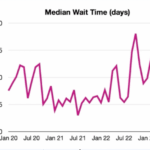Rheumatologists should monitor and aggressively treat cardiac risk factors in patients with lupus and rheumatoid arthritis
Search results for: cardiovascular disease

Prednisone or Methotrexate for Pulmonary Sarcoidosis?
The recently released PREDMETH study results indicate that methotrexate can be considered a real alternative to prednisone for patients with pulmonary sarcoidosis.

Rethinking Lupus Nephritis: Are Current Approaches & Guidelines off Target?
A rheumatologist & lupus expert reviews lupus nephritis treatment, questioning proteinuria cutoffs & ACR guidelines, advocating for newer therapies & end-of-treatment biopsies.

Lupus Nephritis: A Serious Manifestation of Systemic Lupus Erythematosus
This review highlights some of the many abstracts on lupus nephritis research presented at ACR Convergence 2025. They demonstrate advances made on early recognition of the condition, as well as offering some hope in terms of achieving better outcomes.

Workforce Solutions
Three experts discussed novel and practical strategies and resources that rheumatology clinics can use to improve the referral process, screening times and patients access to care.

Advances in Giant Cell Arteritis
Dr. Philip Seo highlights the latest research into the assessment and treatment of giant cell arteritis presented during ACR Convergence 2025.

Case Reports: Mimics of Polyarteritis Nodosa
When polyarteritis nodosa isn’t PAN: Two cases of mimics, segmental arterial mediolysis (SAM) & vascular Ehlers-Danlos syndrome (vEDS), are explored.

Key Research in Vasculitis Encapsulated
Summaries of selected research abstracts on the assessment & management of systemic vasculitis from ACR Convergence 2024.

JAK Inhibitors 101
Experts provided an in-depth review of Janus kinase (JAK) inhibitors, discussing the latest research on their use in the treatment of specific rheumatic conditions, the risks associated with them and more.

Finding the Panacea: The Management of Psoriatic Arthritis
In a session at EULAR 2025, Dr. Laura Coates discussed the management of PsA, providing insights into the current research and when clinicians may want to consider prescribing specific medications.
- « Previous Page
- 1
- …
- 36
- 37
- 38
- 39
- 40
- …
- 66
- Next Page »